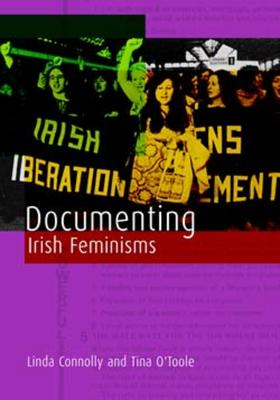Documenting Irish Feminisms
Sally Richardson reviews Documenting Irish Feminisms: the second wave by Linda Connolly and Tina O'Toole, Woodfield Press, ISBN €25 pbk

THIS BOOK is the result of a government-funded three-year research project at University College Cork. That public funds have been made available for this project - which has also involved seminars, exhibitions and workshops, amongst other things - without any constraint on the freedom and independence of the researchers, is progress indeed.
Second-wave feminism first burst onto the public consciousness in the 1960s and early 1970s. The authors cover an extensive ground, from apparently minor (but often highly significant) issues such as the invasion of the Forty Foot and the problems of getting served pints in pubs to the unquestionably major achievements in getting women's rights enshrined in changes to the law, and the influence of feminism on trade unions, the socialist movement, education and publishing.
This is an extremely well-organized book, and although separate chapters deal with different aspects and topics, the authors manage to show how these all connect with one another without the text or layout losing any of its clarity.
The tensions and dissensions that emerged are discussed. Lesbians supported campaigns that didn't always benefit them directly, such as those for contraception and abortion, yet for a long time felt unable to 'come out' even to other feminists and often felt their own concerns neglected. Republican feminists in the Six Counties had to contend not only with the male-dominated Republican movement but also with 26-County feminists who were often 'vehemently opposed to Republicanism in any shape or form.'
Above all, perhaps, this book is about the transformation that feminism has effected in society. As the authors say in their introduction, 'orthodox interpretations of social change in modern Ireland continue to either ignore or else diminish feminism as a minor historical player.' Yet, as this book demonstrates, feminism has not only brought about enormous changes in family and working life, but has altered the very way that people perceive and interact with each other.
The illustrations are plentiful and are taken from a fascinating selection of archival material including leaflets, posters, magazines and cartoons. Much of this material was produced for particular campaigns by the women's groups and activists themselves and doesn't come from mainstream sources. The authors further provide a guide to archives and how to use them, as well as indicating gaps in material. They hope that this project will encourage further research.
It is impossible to praise this book too highly. Linda Connolly and Tina O'Toole have done a brilliant job of combining professional scholarship with accessibility. It would be good to see a copy in every school and college library in Ireland, as well as every public library, to inform and inspire fresh work in this field.
Connolly Association, c/o RMT, Unity House, 39 Chalton Street, London, NW1 1JD
Copyright © 2005 Sally Richardson

